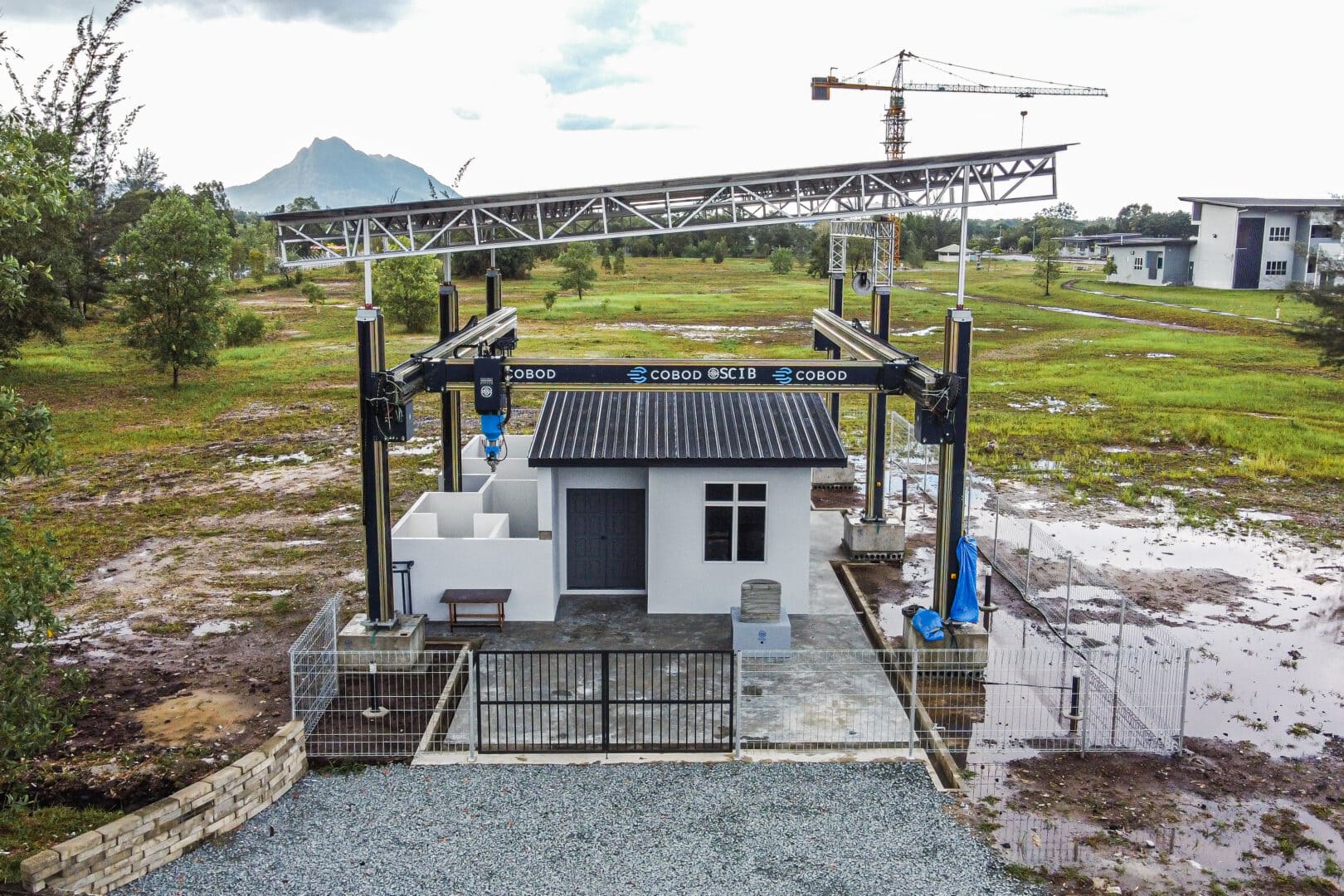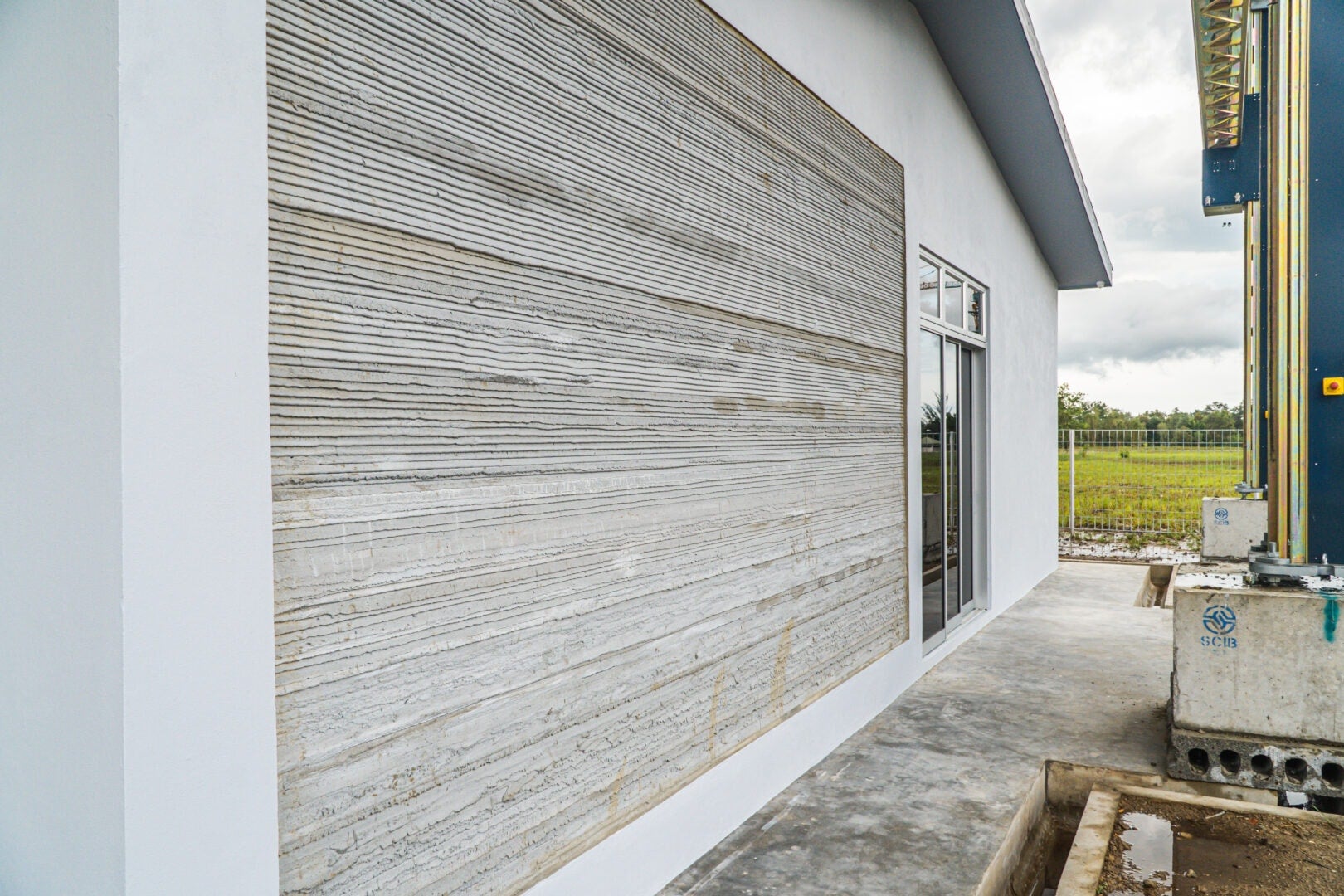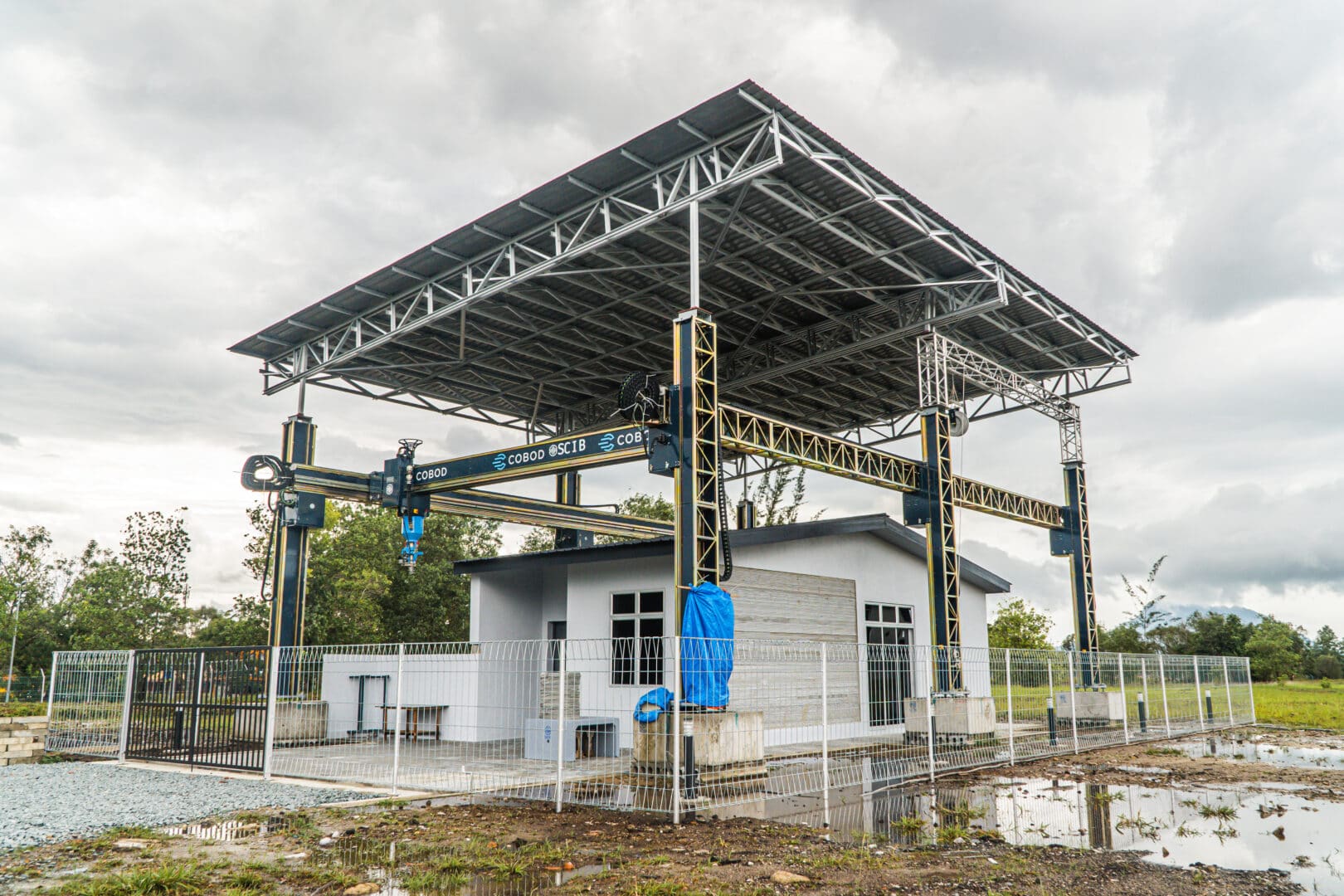Borneo, one of the most beautiful regions on earth, just added something it had not had previously: a 3D printed house. The new home was built by Sarawak Consolidated Industries Berhad (SCIB) and may offer a sustainable way to construct homes on the island moving forward.
3D printed houses are nothing new and are becoming increasingly popular all over the world. The speed of the builds and the lower cost makes additive construction too appealing to ignore, and has the potential disrupt the traditional construction industry. Some countries have utilized the technology more than others, including India, the USA, and Germany, but we may have to add Borneo to that list soon.

The first 3D printed house in Sarawak (Source: SCIB)
Last week, SCIB, a pre-casting company, revealed its first 3D printed house. Coming in at around 1000 sq ft, the structure took about 46 hours to print. The company used COBOD’s BOD2 construction 3D printer to extrude the concrete, and after all was said and done, printed 145 layers at 2 cm height each. The total print length measured in at 9 km and was sealed using plaster to protect the home from mold and algae.

A picture of the side wall showing before and after plastering. (Source SCIB)
The print is located in the Northern coastal part of Sarawak at the Malaysian Construction Academy (ABM) in Kuching, Sarawak, a training arm of the Malaysian Construction Industry Development Board (CIDB). The ABM was a major collaborator with the SCIB to make this project a reality, with the goal of bringing additive construction to the island.

The roof on top of the printer was created by SCIB on-site to make it possible to print outside despite the weather conditions in the region where daily rainfalls in large amounts is the norm. (Source: SCIB)
The two organizations stress the importance of using 3D printing to create a more environmentally sustainable future.
SCIB’s Group Managing Director and Chief Executive Officer, Rosland Othman stated, “The use of technology such as 3D printing comes at a time when businesses are being scrutinized for the impact of their operations on the environment and society. Businesses have an important role in society and an important part is to operate responsibly. We believe 3D construction printing can be part of this and therefore we are also involved in a program with our university partner to develop and improve the skills and knowledge of the construction industry.”
With the backing of the Malaysian government and their many partners, the SCIB should be able to continue innovating and enabling faster and cheaper constructed houses in Malaysia. We will be keeping a close eye on their developments, and we are excited to see what they build next.
Subscribe to Our Email Newsletter
Stay up-to-date on all the latest news from the 3D printing industry and receive information and offers from third party vendors.
Print Services
Upload your 3D Models and get them printed quickly and efficiently.
You May Also Like
Heating Up: 3D Systems’ Scott Green Discusses 3D Printing’s Potential in the Data Center Industry
The relentless rise of NVIDIA, the steadily increasing pledges of major private and public investments in national infrastructure projects around the world, and the general cultural obsession with AI have...
3DPOD 260: John Hart on VulcanForms, MIT, Desktop Metal and More
John Hart is a Professor at MIT; he´s also the director of the Laboratory for Manufacturing and Productivity as well as the director of the Center for Advanced Production Technologies....
Etsy Design Rule Change Reduces Selection of 3D Printed Goods
Online marketplace Etsy has implemented a rule change requiring all 3D printed goods on the site to be original designs. The update to the site’s Creativity Standards states, ¨Items produced using...
E-Beam OEM Wayland Additive Partners with USC Racing to 3D Print Titanium Exhaust Collector
Every year, standards organization SAE International holds a competition called Formula SAE, in which students from both undergraduate and graduate programs design, build, and race small formula-style race cars. For...

































